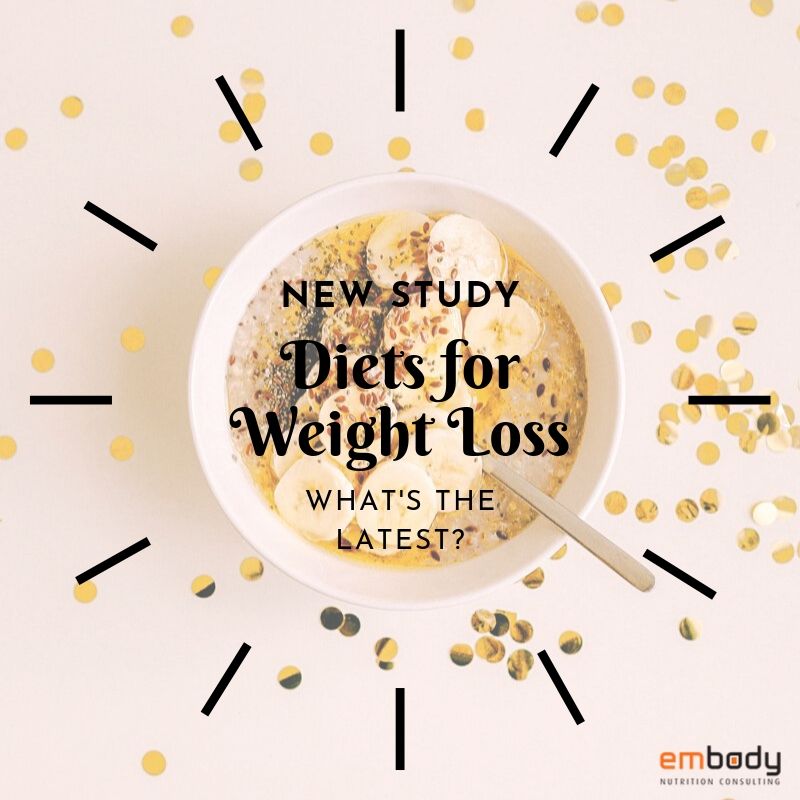Weight loss has always been a key area for nutrition research and we talk about it A LOT with clients. It is such a common goal and there is so much misinformation around that people are still so confused about what works and what doesn’t.
A recent study has come out confirming what we need to focus on if weight loss is the goal and to be honest, there is nothing ground breaking in it! But it is always good to recap the basics and cement in our readers minds that there is no one universal diet for everybody… individualised nutrition is key!
Here are the main take home messages from the study…
Several popular diets are not supported by scientific evidence.
Hopefully, it is already clear that there are so many stupid eating regimes available that are not well researched (or supported by any kind of research at all!). The celery juice diet… detoxing in general… putting butter in your coffee (has that one gone out of fashion yet?!). The nutrition principles behind these diets may be loosely based on evidence, or in the worst case scenario, just completely made up.
There are though, quite a few diets out there that are based on some evidence and do offer some benefits to the individual. Most of them work for weight loss because they create a calorie deficit (consuming less energy than you are expending) and some even offer wonderful health benefits as well (eg. the Mediterranean diet). In saying that, adherence is key with any diet, so following something that doesn’t take into account your lifestyle, family life, religious or cultural beliefs and social situation is not going to be effective long term.
To date, no optimally effective weight loss diet exists for all individuals.
As with everything in nutrition – and we feel like we say this every day – individualisation is key! Follow something that is easy for you to implement and you will be more likely to achieve success. You may not be able to follow the ‘perfect’ diet day in and day out, but you probably don’t have to. There is no one size fits all approach when it comes to nutrition.
Food quality matters in a weight loss diet aiming to promote health.
This is a really key point and something that is really important to consider if you are looking to lose weight. Your health is extremely important and should always come first (outside of some very specific athletic goals that are only short term). This doesn’t only include your physical health though… your mental health can also be dramatically impacted by following a terrible diet, or from dieting for years on end, and it is paramount that this is addressed before looking to focus on weight loss as a goal again.
To lose weight, it is fundamental to adopt a diet that creates a negative energy balance.
Calories are king when it comes to weight loss. Food quality matters; a balance of macronutrients matters (a little less), but when you want to lose weight, you need to be in a calorie deficit. Once this concept become clear to people, there is often a sense of relaxation around food and a realisation that you can be flexible with your nutrition and still achieve your goals. HOORAY!
Adherence is an important predictor of success.
This has already been mentioned however, it is so pivotal to any goal that you have… you have to be able to do what it takes, long term, to be successful. Weight loss is no different and with simple, effective and practical strategies (possibly guided by a professional if it seems overwhelming), you absolutely can achieve your goals and still enjoy yourself in the process.
Reference: Freire, R. 2020, ‘Scientific evidence of diets for weight loss: Different macronutrient content, intermittent fasting and popular diets’, Nutrition, vol. 69

